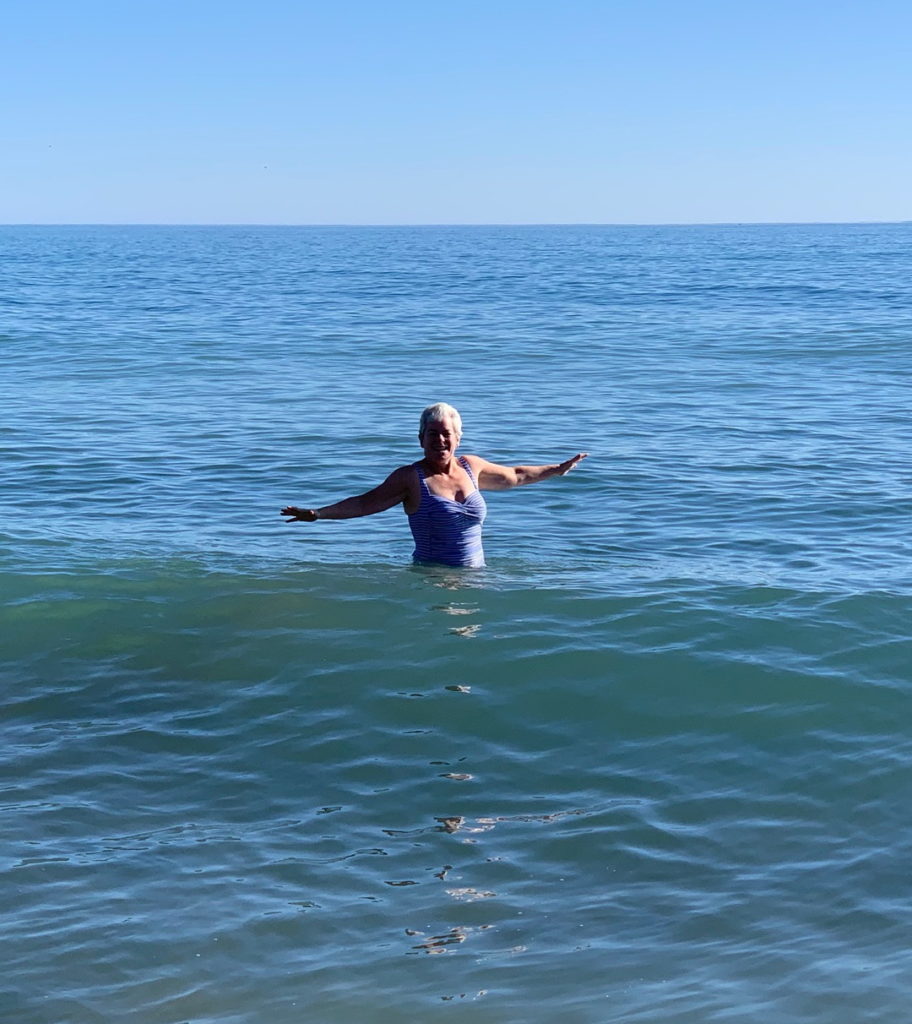
Monday and Wednesday of this past week were both holidays in Spain. Monday was Constitution Day, Wednesday was the Feast of the Immaculate Conception.* Many people decided to take Tuesday off too, so they could bridge into a 5-day long weekend and travel to visit friends in other parts of the country or elsewhere. Our Spanish teacher wanted to know where we’d be going for the holiday weekend. We explained that we had no plans to travel: we’d travelled to be here, in Malaga. But it raised the question: are we on holiday? I would argue, no, we are not. For us this is life. We are here for three months (and would be for nearly six if the visa rules allowed it, but that’s a separate rant).
I’m not sure where the appropriate cut off is between when a holiday becomes life, but it is an important distinction, and one often mistakenly overlooked by new retirees. For years you’ve been scrambling, struggling to find enough time for work, kids, friends, cleaning, shopping, household maintenance, and – never enough – sleep. If you’ve been lucky enough to spend a week or two at a sunny resort every now and then it is easy to imagine how great it would be to retire there. You can see yourself sitting on a terrace overlooking the beach, sipping Sangria (or cerveza, depending on your tastes), and before you know it you’ve got a realtor showing you properties. You are drawn to the quiet villages, far from the hustle and bustle of the city. You are swept away by the ocean waves and the sounds of birds chirping.
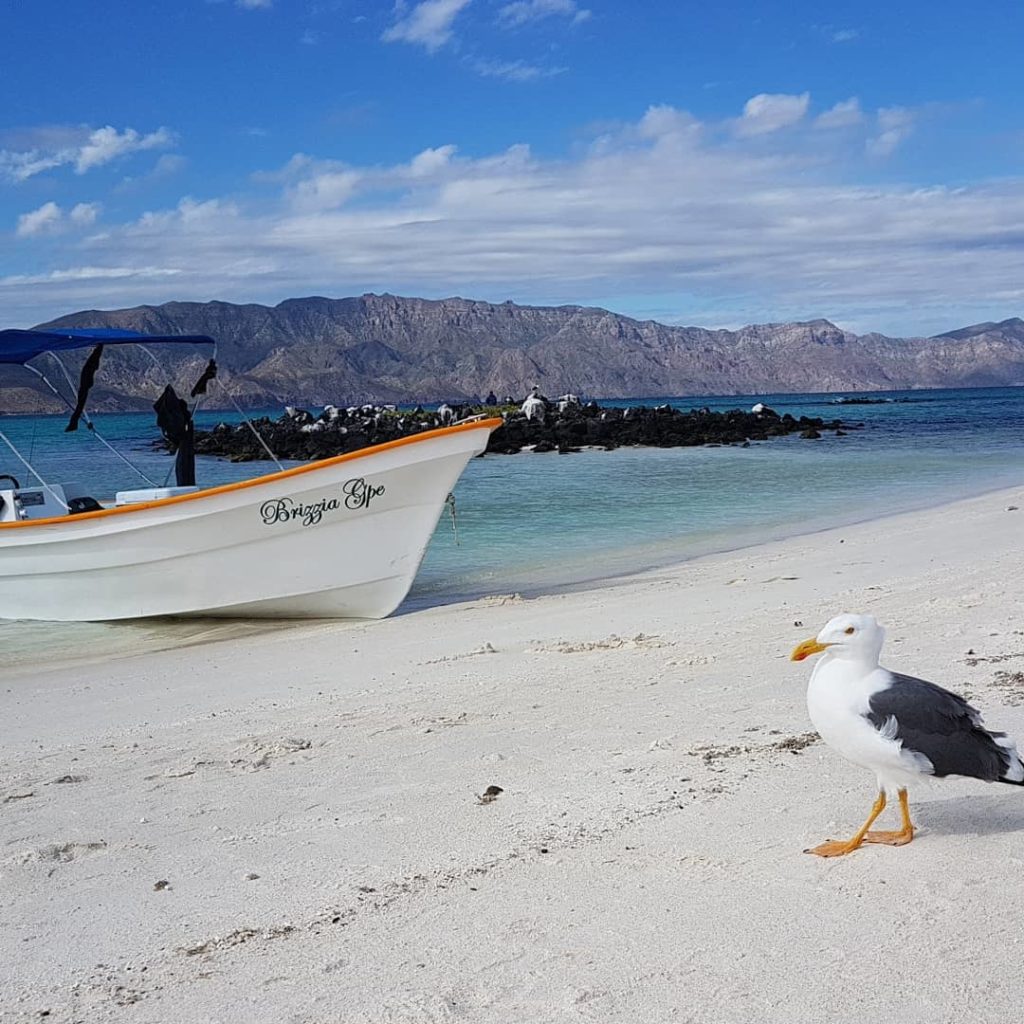
But when the time finally comes to jump head-on into that retiree life, a surprising number of people discover that they’ve made a mistake. The first few weeks are glorious. But then they get bored. They miss their friends. They miss the cultural life of a good-sized city. They start craving a holiday from their “holiday.”
There are many small towns filled with expats along the Costa del Sol in southern Spain. Many were purpose-built for the expatriate community. I briefly wondered if we should rent in one of those places. The big plus is that, in some of them at least, it is still affordable to rent a beachfront apartment. I love the idea of looking out my window at the sea. In the city of Malaga itself it is hideously expensive to rent right along the water. Even if you could afford it, most of the waterfront is edged by a busy, multi-lane roadway that spews car noise up to those beautiful balconies all day and night. No me gusta, as I’ve learned to say in Spanish. Instead we rented an apartment on a quiet street that is a 20 minute walk away from the beach. We can actually see a tiny bit of the water from our sunny balcony, along with some mountains, and it is a fraction of the cost.
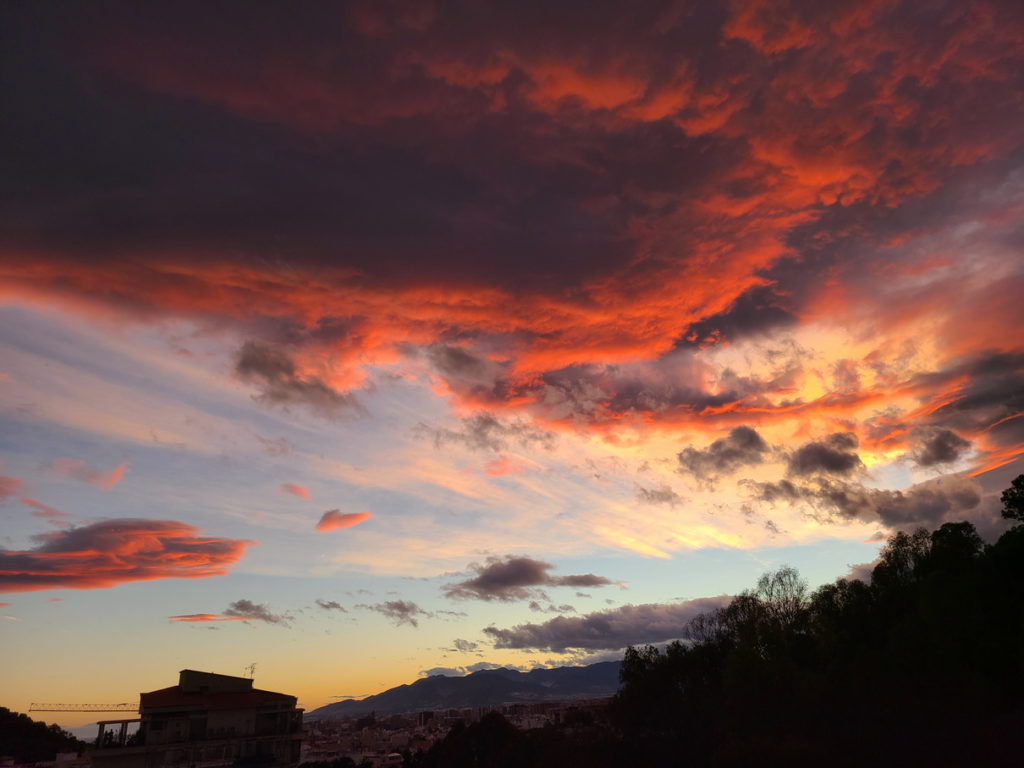
I had also imagined that it if we lived in one of those towns it would be great to have a built-in community of people I could speak to, apart from my Darling Husband (DH). I’ve now met several of them, who trek into Malaga for international gatherings. There are some lovely people. But the odds of clicking with one or two who live in the same small village as you are pretty low, at least for a non-conventional person like me. I prefer my odds in the city, especially since so many expats do come into the city fairly regularly when they have a medical appointment or want to shop in bigger stores, go to a cultural event, or just meet up with a broader group of expats than the small group in their borough.
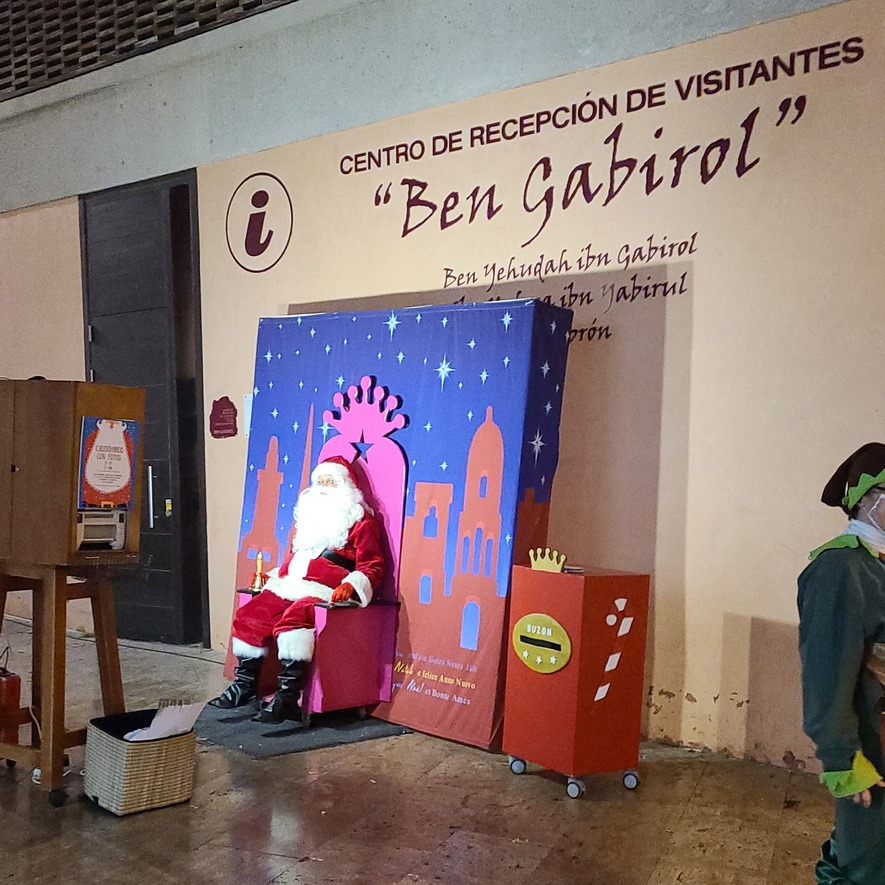
We go for a stroll in the old town centre most evenings. Odd placement of Santa in front of a Jewish Centre. Doubtless unintentional, but it did make me think of how Ferdinand & Isabella built churches on top of Moorish sites (and kicked out all the Jews). 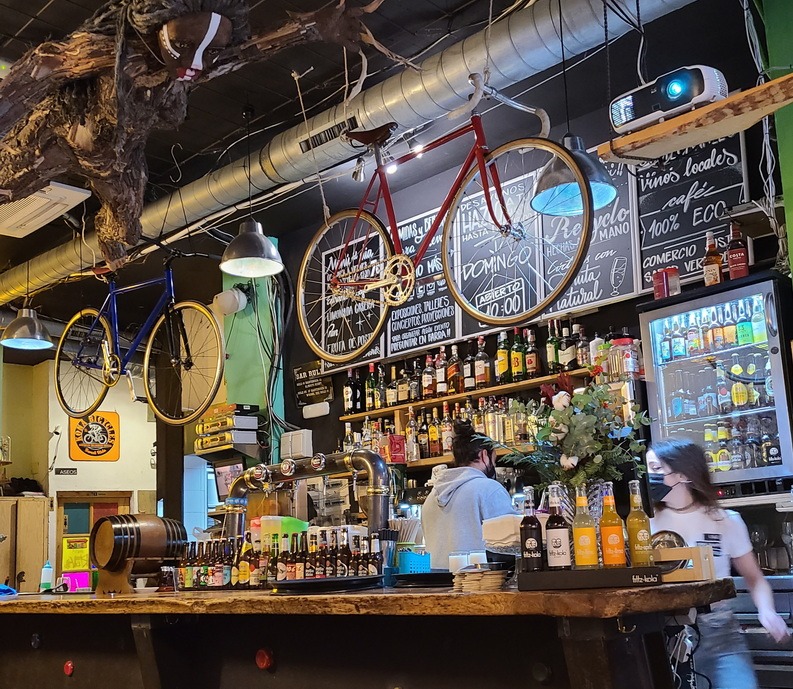
A fave cafe for my cyclist husband!
There’s not as much to do in most of those communities. They probably have a few restaurants; if you are lucky one or two of them will be good. Here in the city, there are hundreds of restaurants, and many are excellent.
In the small centres, the local expat community may have a group that gets together every week for darts or some other activity, but you are, fundamentally, living in a small village. That’s great for some people, but for people like me it would be claustrophobic.
Apart from tribute bands in some of the larger towns, if you want to go to professional theatre or music or dance performances, you have to take a long train or bus ride into Malaga, or own a car and struggle with the nightmare of trying to find a place to park. We, on the other hand, have a 15 – 20 minute walk to all the major performance venues. There are shows to see several nights a week. (Even more if our Spanish were good enough for theatre. Poco a poco, as they keep saying. Eventually we may get there!)
I don’t doubt that many people living in those expat worlds are happy. Perhaps most of them are. But I’ve also met several who acknowledge that they are not. My point is that you should do some serious introspection before committing to a long-term decision. It is best to rent for at least the first year. When you are choosing where to live in retirement, whether it is for three months at a time or for years, bear in mind that the fantasy is not reality, and that a holiday is not daily life.
*I had to do some research to figure out how the Conception could be so close to the birth of baby Jesus. Turns out it refers to the day Mary was conceived. The Church authorities decided at some point that her birth had to retroactively be made sin-free, so that there was no trace of a stain on Jesus. Apologies to any devout Catholics for my simplistic explanation here.

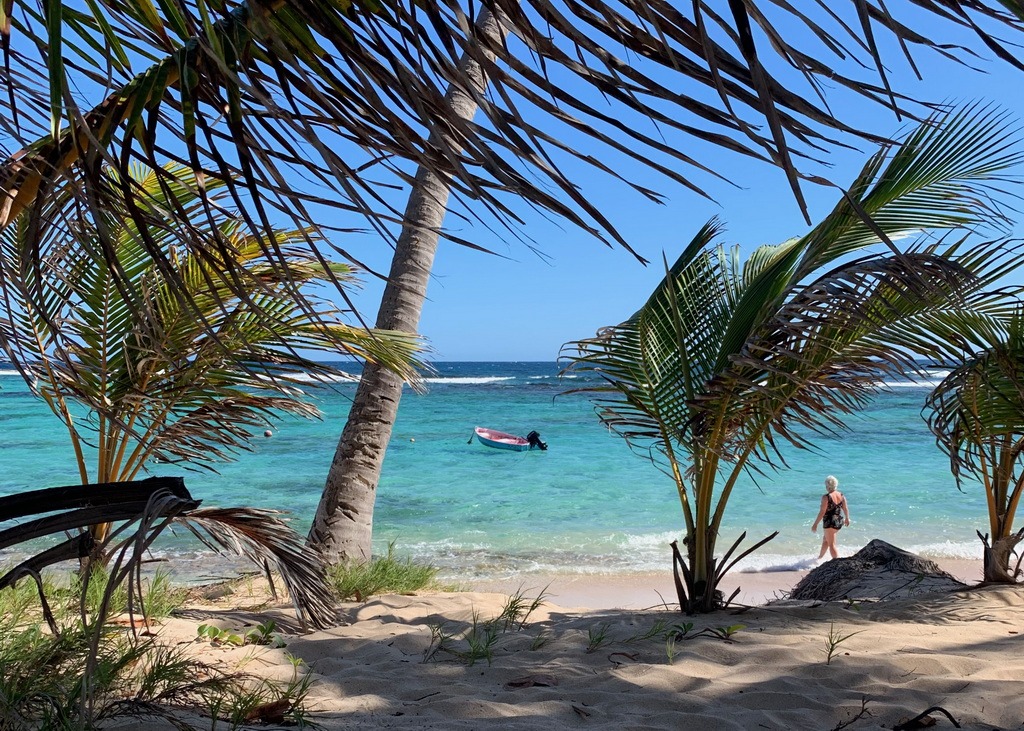
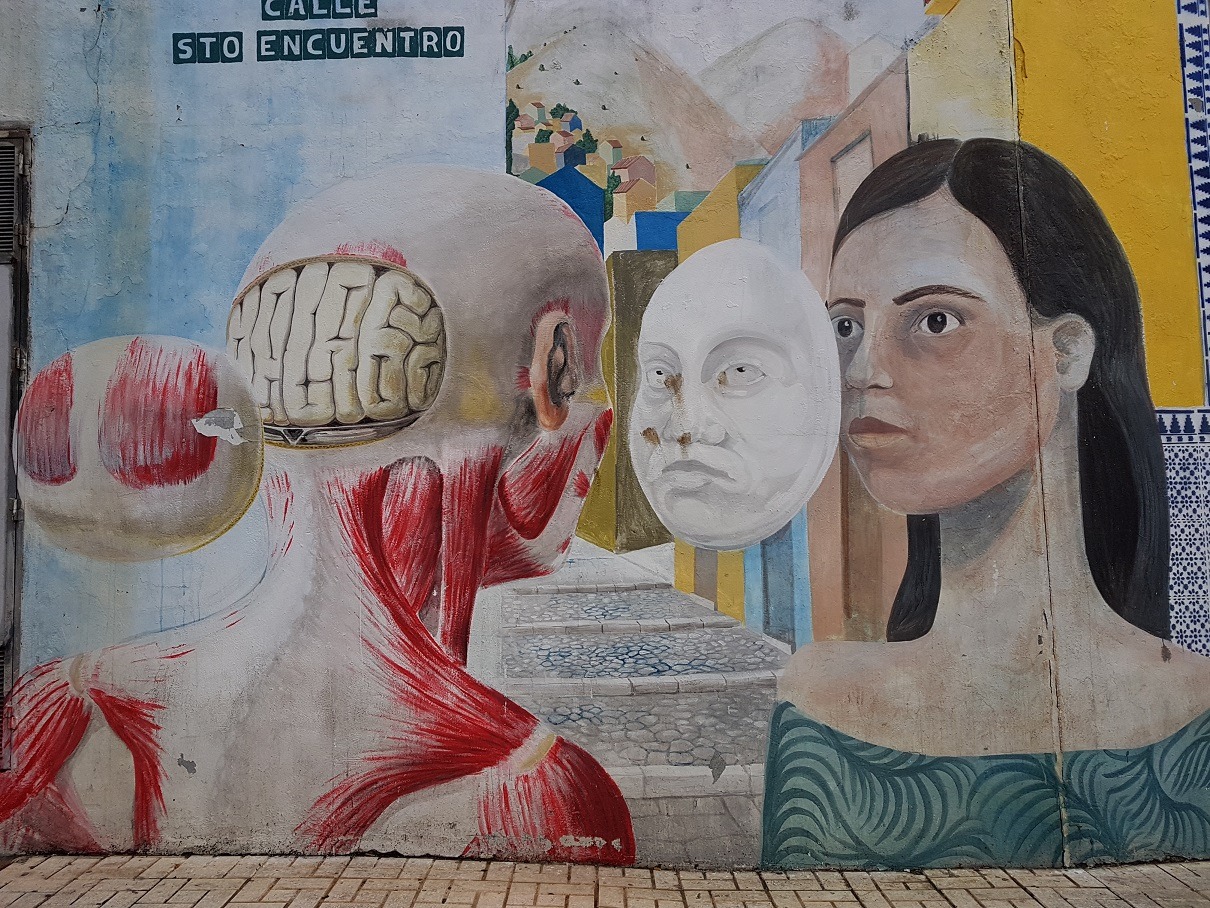
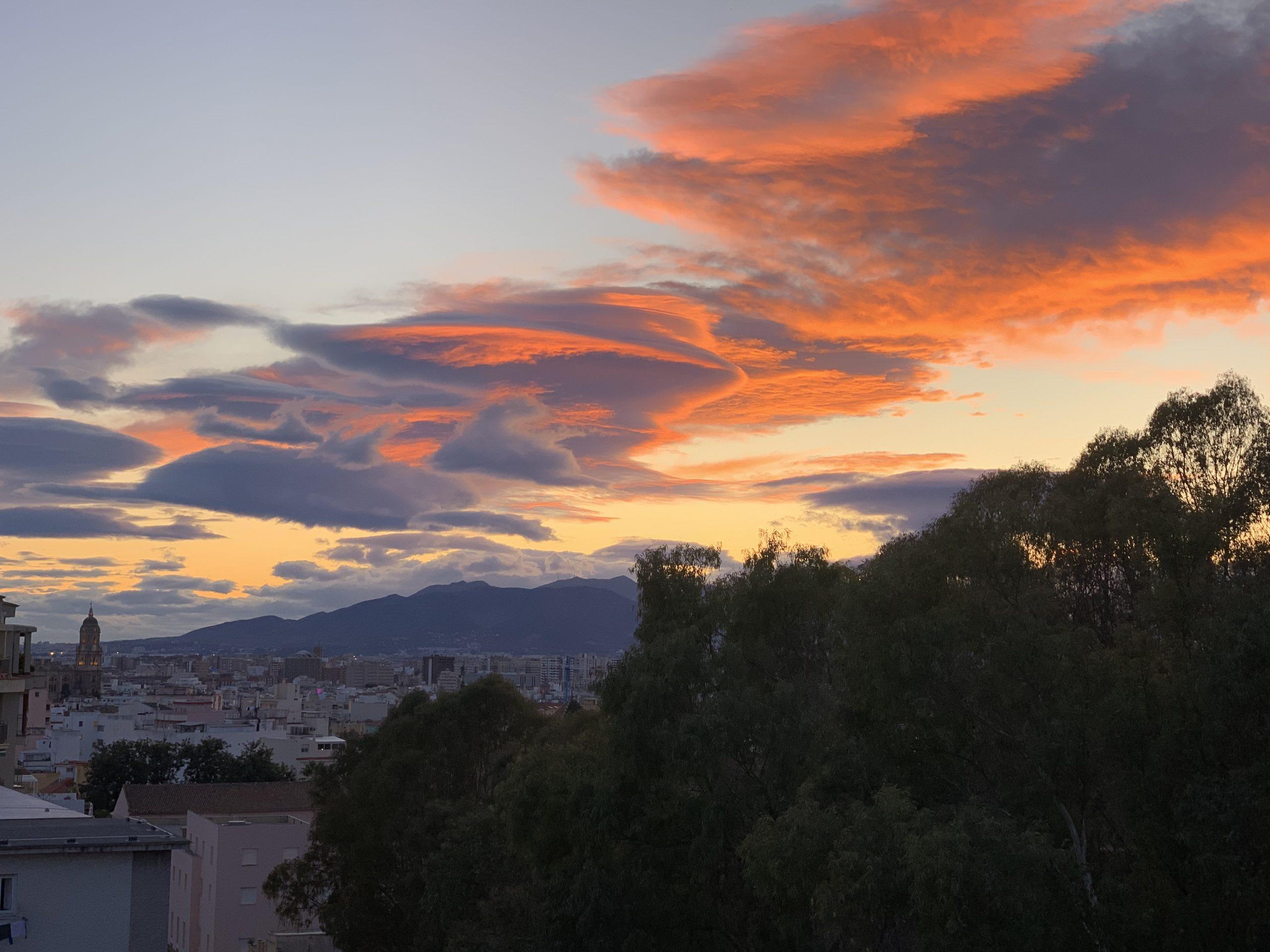
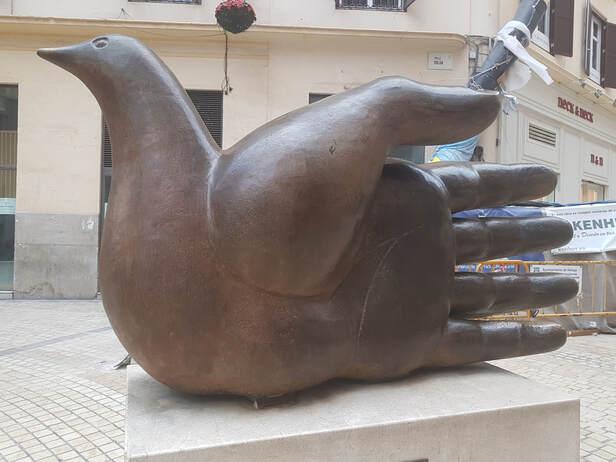
Hi Tema
I’ve read several of your posts and I think you are nailing it. We all spend a lot of time on expat websites and Facebook groups, but not many of them discuss the snowbird experience.
I would love to link to some of your posts, with your permission, on our website, ExPat RoadMap dot com.
Please let me know if that is fine with you….thanks!
Tim C. Martin
Chief Architect
Expat RoadMap
[…] three locations each year. I’ve written before about some aspects of choosing where to stay (see Holidays versus Life: A Novice Retiree’s Perspective). Having now spent two and a half months in a suburban community on the edge of a small beach town […]